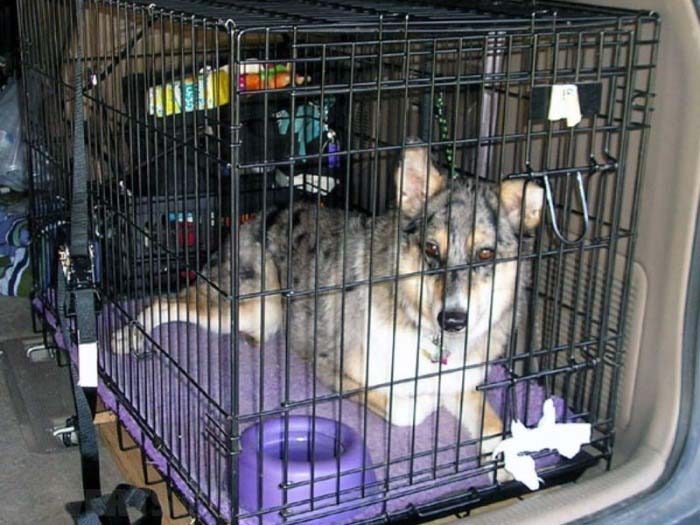
With summer around the corner, many expats in Qatar are preparing to leave the country for good, as several major employers cut costs and lay off workers.
The process of leaving is not necessarily straightforward, especially for those with pets.
To ease the transition, it’s best to give yourself plenty of time and start the necessary steps well in advance of your departure date.
For pet owners, here are a few things to keep in mind:
You’ll need a pet exit permit
In Qatar, animals need their own documents to leave the country.

“Before even considering the requirements of their destination country, pet owners must fulfill the requirements of Qatar in order to receive their exit permit,” Maria Sorongon, a pet relocator at Parkview Pet Center, told Doha News.
This includes having their pet microchipped and vaccinated against rabies at least 30 days prior to departure (but with a one-year validity period), Sorongon said.
Dogs also require a DHPPI vaccination and felines need a TriCat vaccination, she added.
One way to cut down on stress with this step is to keep a pet up-to-date on their vaccinations at all times.
Import requirements vary
The next step is to research the rules around importing animals into your destination country.
European Union countries, as well as Australia, New Zealand and Asian countries including Singapore and Japan, require a rabies test known as RATT.
This test shows the level of antibodies in the animal’s system and determines if they are immune to rabies.

For countries that require the RATT, animals must be microchipped ahead of time. In some stricter countries, the test is only valid for a couple of years.
Canada and the United States are among the easier countries for importing pets and do not require a RATT (although Canada recommends a rabies vaccination certificate) and do not require animals to be kept in quarantine upon arrival.
It is still best to keep the animal up to date on vaccinations and have them microchipped ahead of time even for the more straightforward countries.
If you are unsure of the exact steps to take or do not know which country you will be importing to, it is best to speak to a local pet relocator to ensure your pet is ready to travel when you are.
You must prepare your pet for travel
Once the big steps for relocation are taken care of, there are a few smaller ones that need to be figured out before the actual date of travel.
For the most part, pets don’t get to travel in coach and will need to be placed inside an airline-approved crate. These can be bought at your veterinarian’s or at local pet stores.
You’ll need one that is large enough for the animal to stand and turn around, and it’s best to purchase it ahead of time to make sure your it’s the right fit for your animal and so he/she can become used to it.

On the day of travel, Sorongon recommended taking an animal out for a walk to allow them to relieve themselves – and tire them out.
She advised against feeding animals for eight hours prior to travel so they won’t vomit or “need to go” inside the crate. A warm, absorbable blanket as well as a water bottle or container are musts, she added.
It’s important to note also that animals are not allowed to be sedated on flights.
“The sedation lowers their body temperature to an unsafe level while flying in an already lowered temperature area of the plane,” Sorongon said.
When it doesn’t work out
Because many pet owners in Qatar do not understand the extent of the export process or are unaware of the expenses it entails, they opt to leave their animals behind.
This means many pets are left helpless on Qatar’s streets to fend for themselves.

However, there are many shelters in Qatar that care of stray animals. Still, they really feel the strain during the hot months.
According to the leaders of the Qatar Animal Welfare Society (QAWS):
“The beginning of the summer is by far the worst time of year for all the rescue groups as it’s the time of year when a large portion of the population are leaving, either permanent or for a long vacation, and they are either not taking their pets with them or haven’t made arrangements for them to be cared for over the summer.”
QAWS leaders said that in addition to not wanting to go through the expense and hassle, pet owners sometimes tell them that their accommodation in their new countries aren’t pet-friendly.
The organization doesn’t track the number of such cases it comes across each year.
However, it strongly recommended that anyone who is considering adopting a pet in Qatar research the costs of caring for and exporting an animal in advance.
Thoughts?







